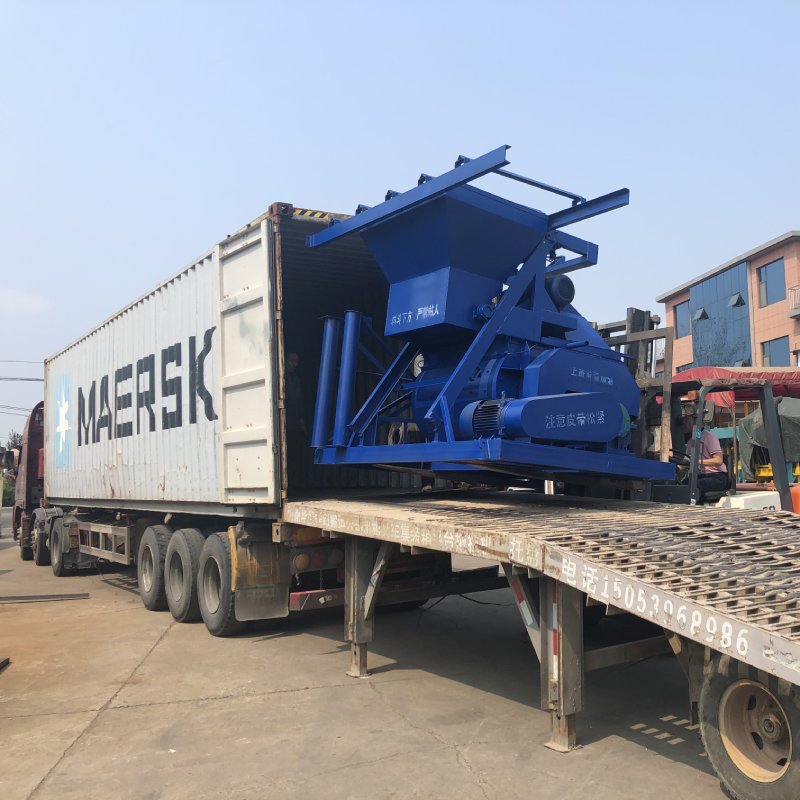
Image source:Aiwei block machine
Introduction
Chinese brick making machines have revolutionized the construction industry with their efficiency, reliability, and affordability. However, the brick manufacturing process often involves the use of kilns, which consume significant amounts of energy and contribute to environmental emissions. To address these challenges, manufacturers are developing and implementing energy-efficient kiln technologies for Chinese brick making machines. This article explores the importance of energy efficiency in kiln technologies, highlights the advancements made in this field, and discusses the benefits and implications for the brick manufacturing industry.
The Importance of Energy Efficiency in Kiln Technologies
Kilns play a vital role in the brick manufacturing process, as they are responsible for firing and curing the bricks. However, traditional kiln technologies are often energy-intensive, leading to high operational costs and environmental impact. Energy efficiency in kiln technologies is crucial for several reasons:
Cost Reduction:
Energy constitutes a significant portion of the operational expenses in brick manufacturing. Energy-efficient kiln technologies can help reduce energy consumption, resulting in lower production costs and improved profitability for manufacturers.
Environmental Sustainability:
High energy consumption in kilns leads to increased greenhouse gas emissions and contributes to climate change. Energy-efficient kiln technologies help minimize carbon footprint and promote environmental sustainability by reducing energy consumption and emissions.
Regulatory Compliance:
Many countries have implemented strict regulations and emission standards for industrial operations, including brick manufacturing. Energy-efficient kiln technologies enable manufacturers to meet these regulations and operate in a sustainable manner.
Resource Conservation:
Energy efficiency in kilns helps conserve natural resources, such as fossil fuels and electricity. By reducing energy consumption, manufacturers can contribute to the conservation of these resources for future generations.
Advancements in Energy-Efficient Kiln Technologies
Chinese brick making machine manufacturers have been at the forefront of developing and implementing energy-efficient kiln technologies. Here are some notable advancements in this field:
Tunnel Kilns:
Tunnel kilns are widely used in brick manufacturing due to their high capacity and continuous operation. Manufacturers have introduced improvements in tunnel kiln design and combustion systems to enhance energy efficiency. These advancements include the use of optimized burners, heat recovery systems, and improved insulation materials to minimize heat loss.
Hybrid Kilns:
Hybrid kilns combine different firing techniques, such as direct firing and heat recovery, to achieve higher energy efficiency. These kilns utilize waste heat from the combustion process to preheat the incoming air, reducing energy requirements and improving overall efficiency.
Biomass and Alternative Fuel Utilization:
Chinese brick making machine manufacturers are exploring the use of biomass and alternative fuels, such as agricultural residues, wood chips, and biofuels, in kilns. These renewable energy sources offer lower carbon emissions and can replace traditional fossil fuels, reducing the environmental impact of brick manufacturing.
Energy Management Systems:
Manufacturers are incorporating advanced energy management systems into kiln technologies. These systems optimize the kiln operation by monitoring and controlling factors such as temperature, airflow, and fuel combustion, ensuring efficient energy utilization.
Waste Heat Recovery:
Waste heat recovery systems capture and utilize the heat generated during the kiln process. This heat can be utilized for preheating combustion air, drying raw materials, or generating electricity, thereby reducing energy consumption and maximizing energy efficiency.
Benefits and Implications for the Brick Manufacturing Industry
The adoption of energy-efficient kiln technologies in the Chinese brick making machine industry brings several benefits and implications:
Energy Cost Savings:
Energy-efficient kiln technologies help manufacturers reduce energy consumption and lower operational costs. This improves the financial viability of brick manufacturing businesses, especially in the face of rising energy prices.
Reduced Environmental Impact:
Energy-efficient kiln technologies contribute to the reduction of greenhouse gas emissions and environmental pollution associated with brick manufacturing. This aligns with global efforts to mitigate climate change and promotes sustainable development in the construction industry.
Enhanced Competitiveness:
Manufacturers adopting energy-efficient kiln technologies can gain a competitive edge in the market. Their environmentally friendly practices and compliance with regulatory requirements make them more attractive to customers who prioritize sustainability.
Innovation and Technological Advancement:
The development and implementation of energy-efficient kiln technologies drive innovation and technological advancement in the Chinese brick making machine industry. Manufacturers are continually exploring new techniques and materials to improve energy efficiency and reduce environmental impact.
Industry Leadership:
Chinese brick making machine manufacturers, with their focus on energy-efficient kiln technologies, have the opportunity to become leaders in sustainable brick manufacturing. This leadership position allows them to expand their market share, attract international customers, and contribute to the global transition to green construction practices.
Conclusion
Energy-efficient kiln technologies are revolutionizing the Chinese brick making machine industry by reducing energy consumption, minimizing environmental impact, and promoting sustainability. The advancements made in kiln technologies, such as tunnel kilns, hybrid kilns, biomass utilization, waste heat recovery, and energy management systems, are reshaping the brick manufacturing process. These innovations not only benefit manufacturers by reducing operational costs and enhancing competitiveness but also contribute to global efforts in combating climate change and achieving sustainable development goals.
As the demand for environmentally friendly construction practices continues to grow, energy-efficient kiln technologies play a crucial role in meeting these requirements. Chinese brick making machine manufacturers are at the forefront of this transformation, driving innovation and technological advancements that pave the way for a more sustainable and energy-efficient future in the brick manufacturing industry.
